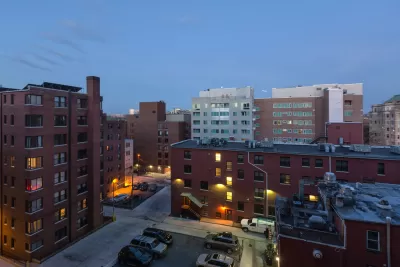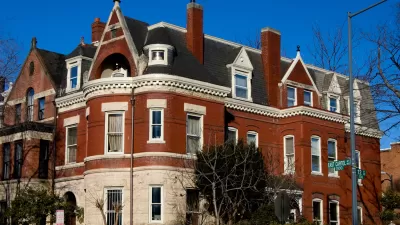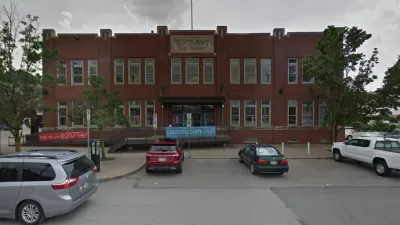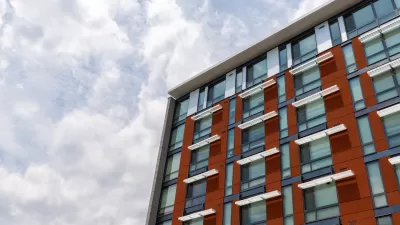Faced with commercial vacancies around 11 percent and the prospect of new office supply coming online soon, D.C. stakeholders are pushing for a bill that would provide incentives for conversions of office buildings into residential units.

Adaptive reuse—converting commercial buildings into residential uses—has spurred investment and the rebirth of downtown neighborhoods in cities like Los Angeles, Baltimore, and New York City. If new legislation under consideration by the Washington D.C. District Council is approved, the nation's capital could see a wave of conversions as well.
"To encourage conversions in the nation’s capital, where the office vacancy rate is around 11.4 percent, the district’s Council members are considering legislation to provide a tax abatement of up to $20 per square feet for 10 years, capped at $5 million a year," reports Eugene L. Meyer. The legislation has support from the DowntownDC and Golden Triangle business improvement districts.
The DowntownDC Business Improvement District released the "Downtown 2027: Vision for the Future" [pdf] report recently, which included an estimate that "new market-rate residences would be worth $600 a square foot, compared with empty office space valued at $450 a square foot." That additional value would more than pay for the cost of the tax abatements to jump start the conversions.
According to Meyer, the legislation isn't a sure thing. Mayor Muriel E. Bowser has expressed some reservations, namely questions about whether the conversations could generate revenue for affordable housing, and how much.
One curious anecdote from the article reporting on the pending legislation must also be noted. Meyer quotes Jack Evans, a Democratic member of the Council and the bill’s sponsor, in the article using the term "Manhattanizing" as a positive. That might be a first.
FULL STORY: A Push to Make Washington’s Downtown More Livable

Study: Maui’s Plan to Convert Vacation Rentals to Long-Term Housing Could Cause Nearly $1 Billion Economic Loss
The plan would reduce visitor accommodation by 25,% resulting in 1,900 jobs lost.

Alabama: Trump Terminates Settlements for Black Communities Harmed By Raw Sewage
Trump deemed the landmark civil rights agreement “illegal DEI and environmental justice policy.”

North Texas Transit Leaders Tout Benefits of TOD for Growing Region
At a summit focused on transit-oriented development, policymakers discussed how North Texas’ expanded light rail system can serve as a tool for economic growth.

How Community Science Connects People, Parks, and Biodiversity
Community science engages people of all backgrounds in documenting local biodiversity, strengthening connections to nature, and contributing to global efforts like the City Nature Challenge to build a more inclusive and resilient future.

Alabama: Trump Terminates Settlements for Black Communities Harmed By Raw Sewage
Trump deemed the landmark civil rights agreement “illegal DEI and environmental justice policy.”

Dear Tesla Driver: “It’s not You, It’s Him.”
Amidst a booming bumper sticker industry, one writer offers solace to those asking, “Does this car make me look fascist?”
Urban Design for Planners 1: Software Tools
This six-course series explores essential urban design concepts using open source software and equips planners with the tools they need to participate fully in the urban design process.
Planning for Universal Design
Learn the tools for implementing Universal Design in planning regulations.
City of Santa Clarita
Ascent Environmental
Institute for Housing and Urban Development Studies (IHS)
City of Grandview
Harvard GSD Executive Education
Toledo-Lucas County Plan Commissions
Salt Lake City
NYU Wagner Graduate School of Public Service




























